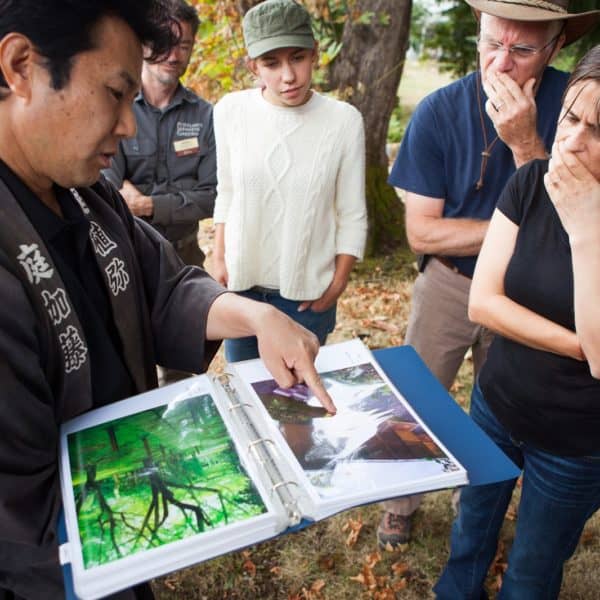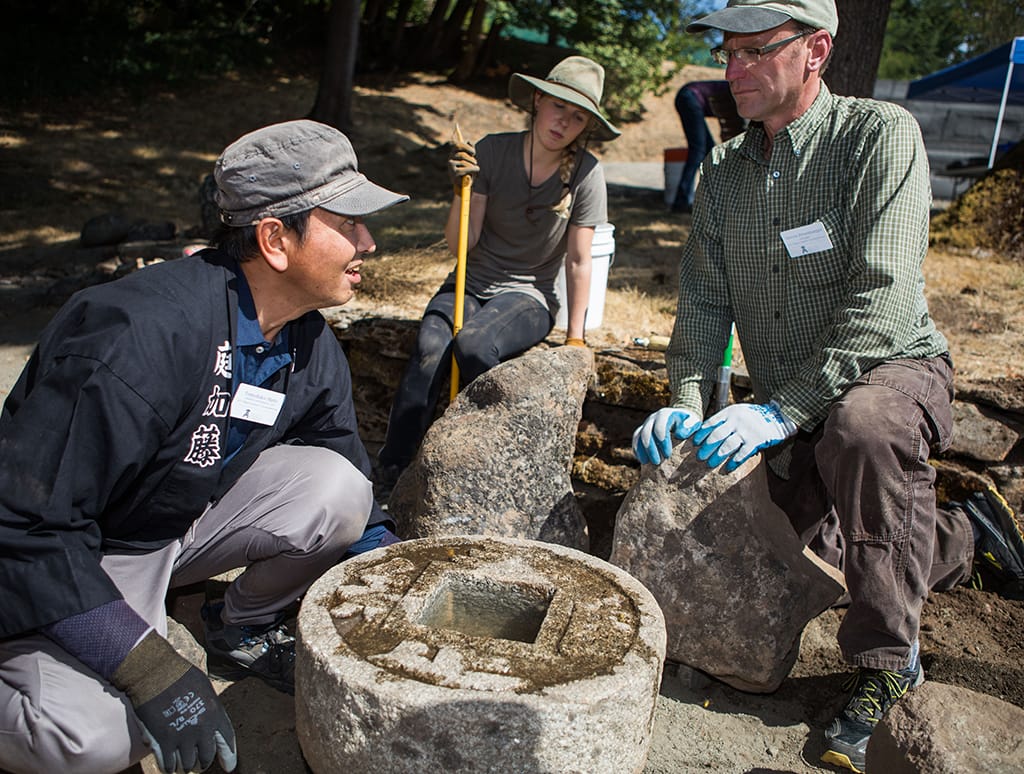
Apply now for the 2019 Waza to Kokoro seminars
June 3-9 beginner
September 16-27 intermediate
Click here to apply!
More than two years have passed since the first Waza to Kokoro: Hands and Heart professional seminar in Japanese garden arts in 2016, and we sometimes hear back from participants about how they’ve used and shared what they learned.
Heather Gryzbek of Morikami Museum and Gardens in Delray Beach, Fla., described redesigning the organization’s tea garden after completing the intermediate-level seminar in 2016. There was initial resistance, but “with my skills and knowledge about the tea garden stonework from the program, I was able to articulate my intentions and talk about certain stones and their relevance. A few days after the renovation was complete, the tea ladies returned and were so happy. They said how wonderful my training must have been that allowed me to create such harmony. I led a docent training and they were excited to learn what the stones meant and how they are placed.”
Steven Pitsenbarger of the San Francisco Japanese Tea Garden recounted how he used his 2017 seminar training to teach his staff: “I shared the readings, and I described the hands on portions of the training. We walked through our garden and examined different views. We had discussions on improvements that could be made based on our new information. I shared the design suggestions made for our Sunken Garden, and the knot tying that I had learned. This was useful to me as I had to be better at tying these knots in order to show others. We have plans to make use of fence building skills later this year.”
2018 marked the first time we have run two seminars in one season – a total of 31 participants at beginner and intermediate level – coming from a total of five countries and from professional areas ranging from hands-on gardeners to landscape architects to arborists to stonemasons. Their departing comments about what they learned speaks to both the diversity of the participants and the multidisciplinary nature of the seminar itself.

Anael Resino, a Boulder, Colo.-based stonemason, said the seminar removed long-held mental barriers he had about design. “Being an installer, I have always felt intimidated by the idea of designing a garden all at once and then building it. What if it doesn’t work? What if they can’t understand my ideas? But during the drawing section with Sada and after his initial saying to the class about sketching “a feeling” more than doing a bird’s view of the whole project and about the garden designer being also the installer in Japanese garden culture, opened my mind with a new confidence.”
It’s exciting to hear that what we teach in Waza to Kokoro is showing up in other gardens. We can hardly wait to hear how our 2018 participants put their new skills and knowledge into everyday practice, and are already excited to welcome next year’s seminar participants. Application is now open for the 2019 seminars, and landscape professionals from all sectors are welcome to apply:
Beginner-level: June 3-9 (Application deadline Feb. 15)
Intermediate-level: September 16-27 (Application deadline April 15)
For more information: japanesegarden.org/thecenter
–Kristin Faurest, director, Japanese Garden Training Center

